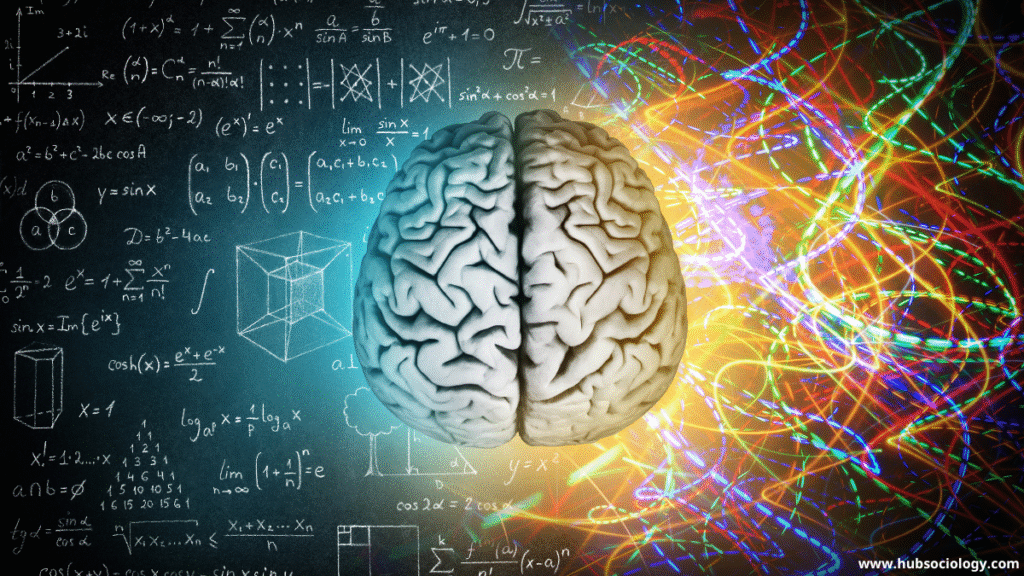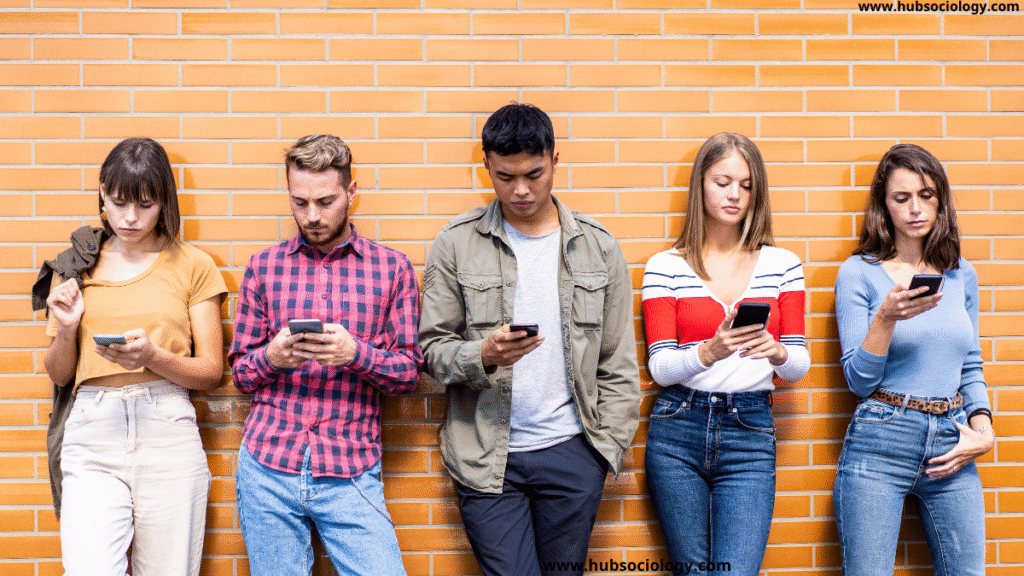Biopower is one of the most influential concepts in contemporary sociology, especially in the study of how modern societies regulate human life. Coined by French philosopher Michel Foucault, the term “biopower” describes the mechanisms through which institutions, states, and systems exercise control over human bodies, behaviors, and thoughts. Unlike traditional forms of power—such as monarchies or dictatorships—that focus on domination through force, biopower operates subtly. It governs life not by coercion, but by shaping norms, managing populations, and influencing how people understand themselves.
In today’s world—characterized by digital surveillance, public health governance, data-driven policymaking, and widespread mental conditioning—biopower has become more relevant than ever. Understanding it helps explain how modern societies create “obedient bodies,” regulate populations, and discipline individuals without overt repression.

Origins of Biopower: Foucault’s Contribution
Foucault introduced biopower in the context of two major shifts in modern society:
1. Disciplinary Power
Appearing in the 18th and 19th centuries, disciplinary power targeted individual bodies. Schools, prisons, hospitals, asylums, and armies developed techniques to train bodies—through surveillance, routines, ranking systems, and correction. The goal was to produce efficient, productive, and obedient individuals.
2. Biopolitical Power
Later, governments turned their attention to the population as a whole. Public health, census data, birth rates, mortality, sanitation, vaccination, and housing policies became tools to manage life at a collective level. Here, power operated through statistics, regulations, and interventions aimed at maximizing productivity and reducing risks.
Together, these two forms constitute biopower—a system that administers life, optimizes health, and normalizes behavior without appearing coercive.
Biopower and the Regulation of Bodies
Biopower influences how people use, think about, and manage their bodies. This includes:
1. Health and Medicine as Tools of Normalization
Modern healthcare systems—while vital—also play a regulatory role. Medical professionals categorize bodies as “healthy” or “unhealthy,” “normal” or “abnormal.” These classifications influence how individuals view themselves and how society views them.
- Vaccination programs shape collective immunity.
- BMI charts define ideal weight.
- Psychiatric diagnoses define acceptable forms of behavior.
- Hospitals regulate how individuals must behave during treatment.
Medicine, therefore, becomes a form of governance—controlling bodies through knowledge and expertise.
2. Discipline Through Institutions
Schools discipline children through timetables, examinations, and rewards. Prisons enforce surveillance, isolation, and corrective techniques. Workplaces monitor productivity, punctuality, and compliance. These institutions shape bodily behavior and physical routines.
The discipline is subtle: individuals internalize rules and eventually regulate their own bodies without direct supervision.
3. Gender, Sexuality, and Bodily Norms
Society imposes norms about appearance, sexuality, and gender performance.
- Women are often pressured to maintain specific body types.
- Men face expectations related to strength and masculinity.
- Non-binary and queer identities experience regulation through laws, social norms, and medical systems.
Biopower thus produces gendered bodies—bodies trained to conform to cultural expectations.
Biopower and the Regulation of Minds
Biopower does not stop at the physical body; it shapes thoughts, emotions, and desires.
1. Ideology and Mental Conditioning
Schools, media, religious institutions, and digital platforms constantly shape mental frameworks.
- School curricula produce national identities.
- Films and advertisements create desires for consumption.
- News media influence political opinions.
- Social media algorithms determine what people see and how they think.
Through these channels, individuals internalize socially approved beliefs and behaviors.
2. Mental Health Governance
Modern societies use psychological norms to categorize individuals as “well,” “anxious,” “depressed,” or “disordered.” While mental health discourse is essential, it also becomes a tool for regulation:
- Workplaces enforce “stress management” norms.
- Schools demand emotional discipline from children.
- Governments promote mental wellness campaigns to shape behavior.
The focus on mental well-being becomes a form of subtle social control, guiding citizens to self-regulate and conform.
3. Data, Surveillance, and Digital Control

The rise of digital technology has produced new forms of biopower:
- Social media companies collect behavioral data.
- Governments use biometric systems.
- Algorithms predict choices, preferences, and risks.
- Digital health apps monitor bodily activities.
Surveillance is no longer limited to police; it is integrated into everyday life. People willingly share data, unknowingly participating in their own governance.
Biopower and Population Management
At the societal level, biopower works through policies and interventions designed to regulate populations.
1. Public Health Policies
States control populations through laws and programs:
- vaccination mandates
- reproductive health laws
- quarantine guidelines
- disease surveillance systems
These practices ensure population stability but also extend state control deep into personal life.
2. Birth Control, Fertility, and Demography
Governments use demographic data to manage:
- birth rates
- family planning
- migration policies
- labor force participation
Examples include China’s former one-child policy, India’s emergency-era sterilization campaigns, and modern fertility incentives.
Population becomes a measurable, controllable entity.
3. Social Welfare and Risk Management
Welfare systems categorize citizens as “needy,” “dependent,” or “employable.” Insurance systems determine “risk profiles.” These classifications guide how resources are distributed.
Biopower thus decides whose lives are valued, protected, or neglected.
Biopower in the 21st Century: New Frontiers
Modernity has not weakened biopower; it has intensified it.
1. The Pandemic Example
During COVID-19, biopower became visible:
- lockdowns
- travel restrictions
- mask mandates
- vaccination passports
- health-monitoring apps
Governments exercised power over bodies in the name of public safety, while populations complied for collective well-being.
2. Neoliberal Self-Regulation
Under neoliberalism, individuals are told to manage their own risks:
- track steps, diets, and sleep
- upgrade skills and productivity
- manage stress and emotions
- maintain employability
People become “entrepreneurs of themselves”—governing their lives according to market logic.
3. Biotechnologies and Genetic Governance
Advances in biotechnology—CRISPR, cloning, IVF, DNA tests—enable unprecedented control over life itself. Future societies may regulate populations at a genetic level.
Biopower is evolving from controlling behavior to potentially redesigning life.
Criticisms of Biopower
Scholars have raised critiques:
1. Overemphasis on Control
Some argue Foucault focuses too much on domination and ignores individual agency. People resist, challenge, and negotiate power rather than simply accept it.
2. Deterministic Approach
Critics say Foucault underestimates the role of social class, capitalism, and inequality. They argue biopower cannot be understood without examining economic forces.
3. Western-Centric Perspective
Foucault’s analysis is rooted in European contexts. In postcolonial societies, biopower intersects with caste, race, ethnicity, and colonial histories.
Nonetheless, biopower remains a powerful analytical tool for understanding modern society.
Why Biopower Matters in Contemporary Sociology
Biopower helps sociologists understand:
- How governments regulate public health
- How institutions shape behavior and identity
- How data and technology influence choices
- How norms of gender, sexuality, and race are produced
- How surveillance becomes normalized
- How individuals internalize social expectations
It reveals that power is not merely repressive; it is productive. It produces knowledge, norms, and identities. It operates not just through laws but through everyday practices that shape who we are.
Conclusion
Biopower represents one of the most profound transformations of modern governance—shifting the focus from controlling territory to controlling life itself. By regulating bodies, shaping minds, and managing populations, biopower creates societies where power is both omnipresent and invisible. Individuals believe they are acting freely, yet their thoughts, desires, and behaviors are shaped by systems operating behind the scenes.

In the 21st century—characterized by digital surveillance, artificial intelligence, biotechnology, and data-centric governance—biopower continues to evolve, influencing how people live, behave, and think. Understanding biopower is essential for recognizing how modern societies function and how individuals can navigate, resist, or reshape the forces that govern them.
Do you like this Article ? You Can follow as on :-
Facebook – https://www.facebook.com/hubsociology
Whatsapp Channel – https://whatsapp.com/channel/0029Vb6D8vGKWEKpJpu5QP0O
Gmail – hubsociology@gmail.com
Topic Related Questions
5-Marks Questions (Short Answer)
- Define Biopower in sociology.
- Distinguish between disciplinary power and biopolitical power.
- How does medicine function as a tool of Biopower?
- Explain one example of Biopower operating through schools.
- What is the role of surveillance in Bio-power?
- How does Bio-power influence individual bodies?
- Mention two contemporary examples of Bio-power.
- What is the connection between Bio-power and public health?
- State two criticisms of Foucault’s concept of Bio-power.
- How does Bio-power shape norms of gender and sexuality?
10-Marks Questions (Medium Answer)
- Discuss the core elements of Bio-power as introduced by Michel Foucault.
- How do institutions like prisons, hospitals, and schools exercise Bio-power?
- Analyze the role of digital surveillance in the expansion of Bio-power.
- Explain the relationship between Bio-power and mental health governance.
- How does Bio-power regulate populations through demographic control?
- Discuss Bio-power in the context of the COVID-19 pandemic.
- Examine how neoliberalism encourages self-regulation under Bio-power.
- How does Bio-power shape gendered and sexual identities?
- Evaluate major criticisms of the concept of Bio-power.
- Discuss Bio-power as a mechanism of risk management in modern society.
